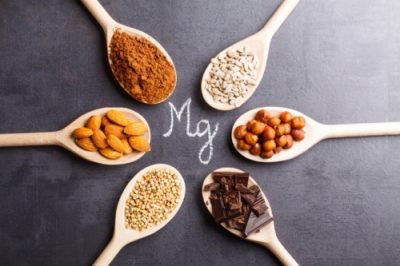Getting enough magnesium is essential for maintaining good health. Magnesium is an essential mineral required by every organ in the body for a range of activities including bone, protein and fatty acid formation.
It is the fourth most abundant mineral in the human body and is also essential in activating vitamins B and D, relaxing muscles, regulating calcium levels and helping blood to clot and is required for the secretion of insulin. Many of us do not get enough magnesium in our diets.
Adults require about 300 to 400 milligrams a day.
Even if you do eat a healthy diet, you may not be getting enough of it. I was surprised to find I was deficient in this incredible mineral, which is why I wasn’t absorbing calcium.
Some studies indicate that magnesium deficiency increases the risk of postmenopausal osteoporosis and increasing magnesium intake may prevent the bone loss that leads to osteoporosis.
Extensive research is continuing into magnesium’s health benefits, but researchers believe maintaining adequate levels is beneficial in treating and managing the following conditions: asthma, diabetes, fibromyalgia, high blood pressure, migraines, osteoporosis, pre-eclampsia (pregnancy-induced hypertension), premenstrual tension and restless leg syndrome.
Magnesium is also thought to play a role in the sleep cycle. I find myself sleeping better and feeling less fatigued when I take a supplement. I do try and get enough from natural food sources however.
Food Sources
The following foods are good to excellent sources of magnesium:
- Pumpkin seeds: 46% of the RDI in a quarter cup (16 grams).
- Spinach, boiled: 39% of the RDI in a cup (180 grams).
- Swiss chard, boiled: 38% of the RDI in a cup (175 grams).
- Dark chocolate (70–85% cocoa): 33% of the RDI in 3.5 ounces (100 grams).
- Black beans: 30% of the RDI in a cup (172 grams).
- Quinoa, cooked: 33% of RDI the in a cup (185 grams).
- Halibut: 27% of the RDI in 3.5 ounces (100 grams).
- Almonds: 25% of the RDI in a quarter cup (24 grams).
- Cashews: 25% of the RDI in a quarter cup (30 grams).
- Mackerel: 19% of the RDI in 3.5 ounces (100 grams).
- Avocado: 15% of the RDI in one medium avocado (200 grams).
- Salmon: 9% of the RDI in 3.5 ounces (100 grams).
Be sure to eat plenty of magnesium-rich foods, or take a supplement if you’re unable to get enough from your diet alone.
Without enough of this important mineral, your body simply can’t function optimally.
Next time your visiting your GP, ask for your levels to be tested.


